Actor Ian McKellen, who found out he had prostate cancer in 2006, once said, “I have got prostate cancer, and I have to keep monitoring that. It’s no problem, it’s under control and I’m very cool about it, but other people are dying from it.”
Other people are dying from it. In fact, more than 75 American men per day and 26,730 men per year — enough to fill a baseball stadium — die from the disease each year. But those are just two important facts everyone should more. There are many others.
We partnered with ZERO – The End of Prostate Cancer, a nonprofit whose mission is to end prostate cancer, to ask readers what they think is the most important thing others should know about prostate cancer.
Here are their answers:
1. “Prostate cancer isn’t just for the old. [My son] was diagnosed at age 9 and again at age 11.” — Zona S.
2. “The age thing goes without saying. I was 44 when I got diagnosed. Without support I’d be dead.” — Syd J.
3. “I lost my dad to prostate cancer. He had all of the symptoms early but wouldn’t go to the doctor because his cousin was diagnosed then [died by] suicide. When my dad’s hip wouldn’t quit hurting, he had an MRI and found out it was stage 4 prostate cancer that spread to his bone marrow. He was dead in less than two years. Early detection is a must.” — Cimberly R.
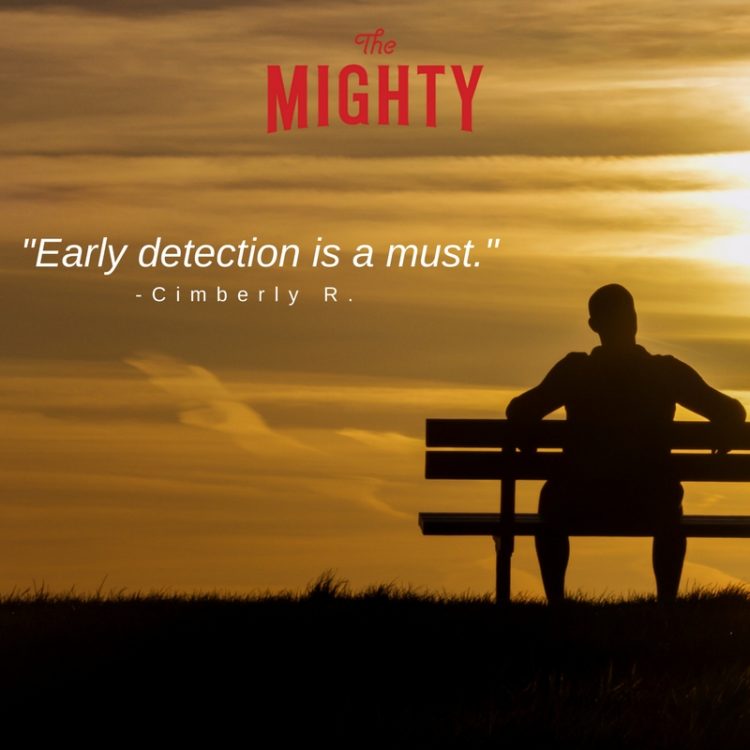
4. “Survivable.” — Arthur K.
5. “Education is key. I was on hormonal therapy — the side effects were terrible. Teach yourself as much as you can about the disease. The way doctors treat you changes, often. And doctors have varied opinions about treatment.” — Jimi C.
6. “It’s OK to talk about it. August 31 will be the five-year anniversary of when we lost our dad. Since his death, I’ve become an advocate for prostate cancer awareness, but I really wish I knew back then what I know now. Prostate cancer affects the whole family and we want to help our men. I hate that I didn’t understand what my dad was going through at the time, but he never talked about it. Time to get the conversation started!” — Kimberly C.
7. “Get checked! You are never too young. My husband was 48 — a healthy triathlete — and diagnosed with stage 4 prostate cancer. Screening is so important.” — Chris B.
8. “Race does make a difference.” — Rodney J.
9. “Get checked every year, and investigate family history. My husband was 49 when he was diagnosed in July 2014 with stage 4 prostate cancer because it had already spread into his bones. He had no symptoms prior to being hospitalized. At onset, his PSA was over 800. Since then he’s received 18 chemo sessions, two radiation rounds, hormone shots, different medications and participated in a clinical trial. We’re still fighting. Prostate cancer affects the whole family. My son will have to be examined every year so we can catch it early if God forbid he ever gets it. I have become an advocate to others and I’ve encouraged all my male family and friends to go to their primary doctor and request a blood test so they can be proactive. It is better to be safe than sorry. I haven’t started caregiver classes or participated in caregiver groups yet but, that is next on my agenda. Thank you for bringing awareness to this particular cancer. It is imperative more research be conducted to eradicate cancer in totality so families aren’t ripped apart. Also, say thank you to all of the doctors, nurses, techs and medical staff wherever you’re receiving treatment because without them, patients and families would be out of luck. The nurses are amazing. They are usually the first to assist the patient, caregiver and family members when needed.” — Michele K.
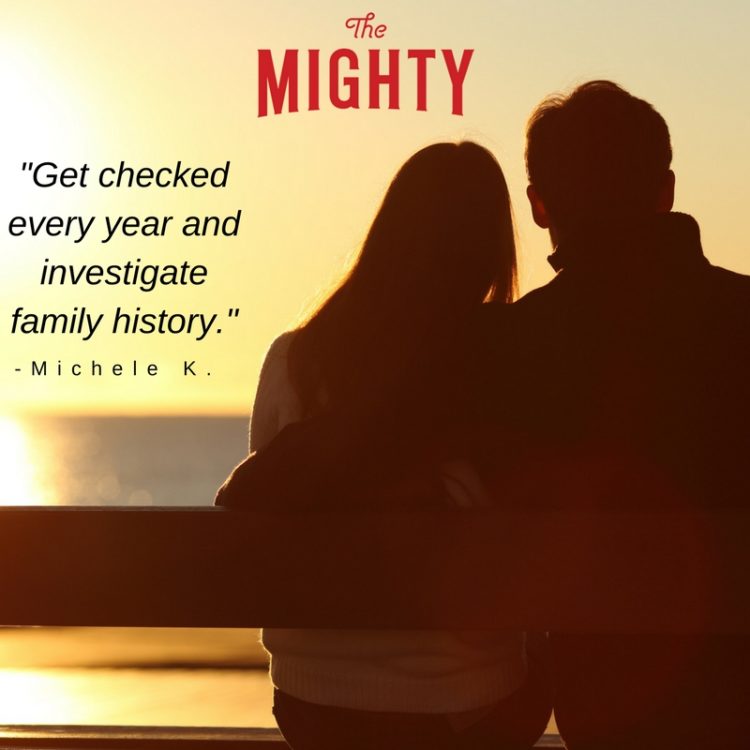
10. “Do not rely on the blood test. My dad had a reading that was well below normal — he died 13 months later. His tumor was non-secreting, so it had no effect on his PSA levels.” — Bernie H.
11. “You have options. Get to a prostate cancer support group ASAP. Do it now.” — Peter R.
12. “It is in the same family as breast cancer. My grandma passed away from breast cancer and my dad was diagnosed with prostate cancer. We had no idea they could be passed down like that!” — Ashleigh Y.
13. “Why the emphasis on early detection? Because prostate cancer exhibits no noticeable physical symptoms until after it has metastasized, after which it can only be managed or controlled, but not ‘cured.” — Tom D.
14. “Early detection is the key It all starts with a PSA test — a simple blood test your PCP can give you. Start no later than 50 years old — 40 years old if you are a higher risk group, i.e. African Americans, or if prostate cancer is already in your family.” — Bill M.
15. “Surgery is not your only option.” — Jill M.
16. “More doctors should advocate getting your PSA tested with your annual exam. It should be part of the blood work for an annual.” — Sandy R.
17. “Life and love-making go on after surgery, and intimacy, though changed, is just as exciting and fulfilling.” — Kathryn S.
18. “I am a urology medical assistant. Get checked! PSA and DRE. Prostate cancer has no bounds. Early detection is key.” — Cara V.
19. “The side effects from the treatments and surgeries can seem to be just as harmful and debilitating as the cancer itself, even after the cancer is gone.” — Katy R.
20. “It’s not a death sentence if caught early. 10 years and counting here!” — Lenny O.
21. “No, you can’t take a pill to get rid of it.” — Jo Anne
22. “It’s not an old man’s cancer anymore. Radical prostatectomy at 45; now 52. Men should be getting checked at 40.” — Jeffrey H.
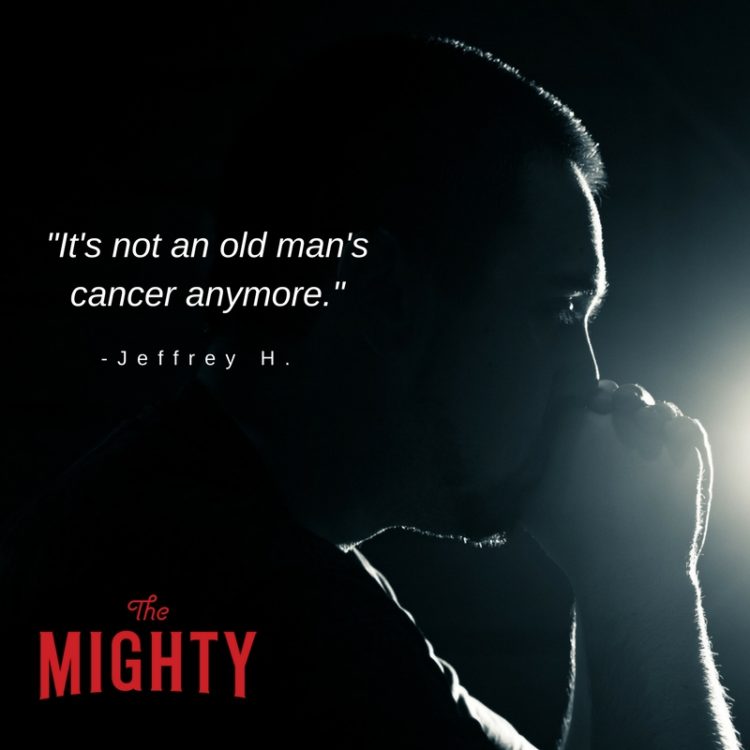
23. “It’s serious and can be terminal. I also encourage men to get tested regularly.” — Pam H.
24. “My husband survived prostate cancer, too. Doc said the best thing to do at his age was to take it out. He didn’t have to have treatments.” — Patty S.
25. “My late husband lost his battle with the ‘cancer you die with but not what kills you’ (quoting the urologist who delivered the diagnosis) on 6/7/11… less than three years after diagnosis. I would want more people to know it kills men in the prime of their life. I don’t understand why some in the medical community continue to spread the lie it’s a benign cancer when 38,000 men lose their lives annually!” — Jackie K.
26. “A simple PSA blood test can save your life. A lot of men avoid prostate cancer discussions with doctors because a lot of people feel an ‘invasive’ exam is the only option, when the reality is the PSA blood test is often times all that needs done. If the PSA blood test comes back with an alarming result yes, the more physically-invasive tests will follow, but I would rather deal with those tests than have my family deal with making funeral arrangements. I lost my dad to prostate cancer seven-and-a-half years ago. He got diagnosed at stage 4 in July and passed in February. It was awful watching my hero go through that. I have made it my mission to help educate those around me about prostate cancer.” — Denny P.
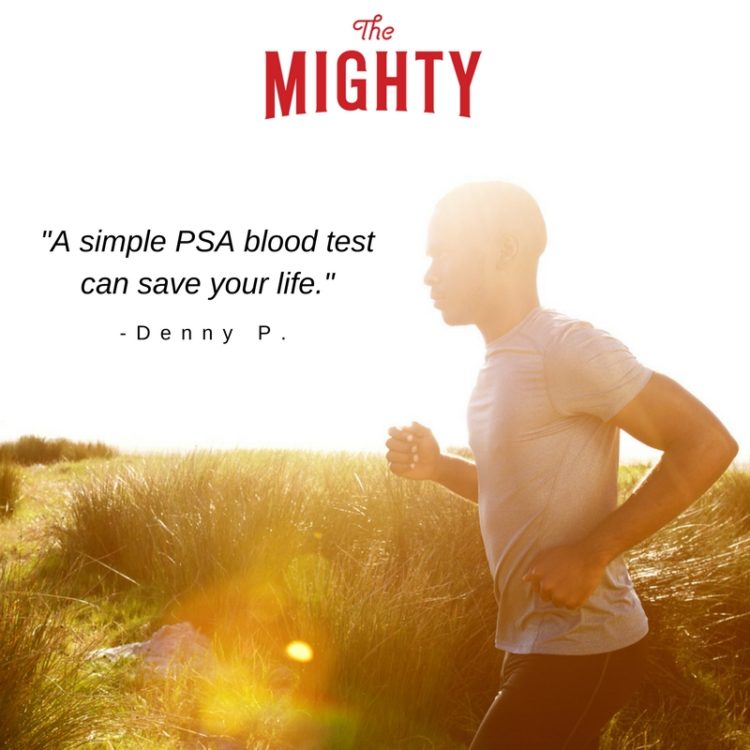
27. “It can be fatal. When my dad was diagnosed people would often say things like ‘If you have to have cancer, that’s the best kind to have; it’s very treatable.’ He ended up passing away from this ‘easily treatable’ cancer. It can be fatal.” — Krystal D.
28. “A simple blood test could save your life — it did my dad’s. It also is not ‘an old man’s disease’ as so many assume. My dad was diagnosed at 47 years old and a friend of mine was diagnosed at 41!” — Val M.
29. “A little embarrassment is worth it to save your life. All men should have a PSA check from 40, if only to get a baseline level; it’s how fast the PSA rises that indicates a problem. My husband was 56 when diagnosed, died at 63. Don’t gamble with your lives.” — Anita O.
30. “The week after surgery was torture for me — catheter, constipation, sleeplessness. I recommend for all men approaching surgery to make sure they have a recliner. It will enhance comfort and be a good solution for sleeping.” — Rich C.
31. “Despite what you read in all the media sources, men need to get checked for prostate cancer. The PSA blood test may not be perfect, but it still saves lives. Many prostate cancers are slow-growing but some are not. My husband was 50 when they found his cancer and it was an aggressive one and we have been fighting it for 12 years. Unfortunately, it is now in his bones. We need to make men aware of this cancer and get people talking about it so more research can be done and lives saved.” — Karen R.
32. “Men, do your part — don’t fear the finger. Women, if your man has PC and you have children, get genetic testing. Your daughters and sons deserve a future… 38 was too young to be diagnosed and 40 was too young for him to die.” — Mary E.
33. “To all the men in our lives, ‘What is your PSA?’ At 55 years old, all men should get a PSA blood test. If you have a history of prostate cancer in your family or are considered to be high risk, like African American males, get tested earlier. Know your number. Ask questions. Don’t settle. Be an advocate. Fight against prostate cancer!” — Nicola H.
34. “Nine years ago, prostate cancer completely changed my life. Guys 40 and over, at least get a PSA blood test. You should also have the old finger wave — it’s only uncomfortable for a few seconds. I got lucky. We found mine early. Early detection can make a difference between life and death. Why gamble?” — Jim W.
35. “All men, get yourself checked out. My husband was one of the lucky ones. When he got prostate cancer he had his removed and it was a good thing he did that because his was a fast-moving cancer. He is now six years cancer-free. And I am so thankful.” — Jeanne M.
36. “Please don’t be afraid to be tested for it. My cancer was found and treated early thanks to a routine check-up. Black men in the U.S. have the highest prostate cancer rate of incidence, but I was so fortunate. It is now my duty to get the word out to other men for them to get checked. The resources at ZERO Cancer have helped me do that… just so grateful I can’t even stand it.” — Kevin T.
37. “Every man needs to get a PSA blood test early, especially if it runs in your family. My husband passed away from it at 61. It could save your life.” — Patti K.
38. “Prostate cancer does not discriminate. It can take the one you love. Early detection is the key. #RIPDAD” — Sandra M.
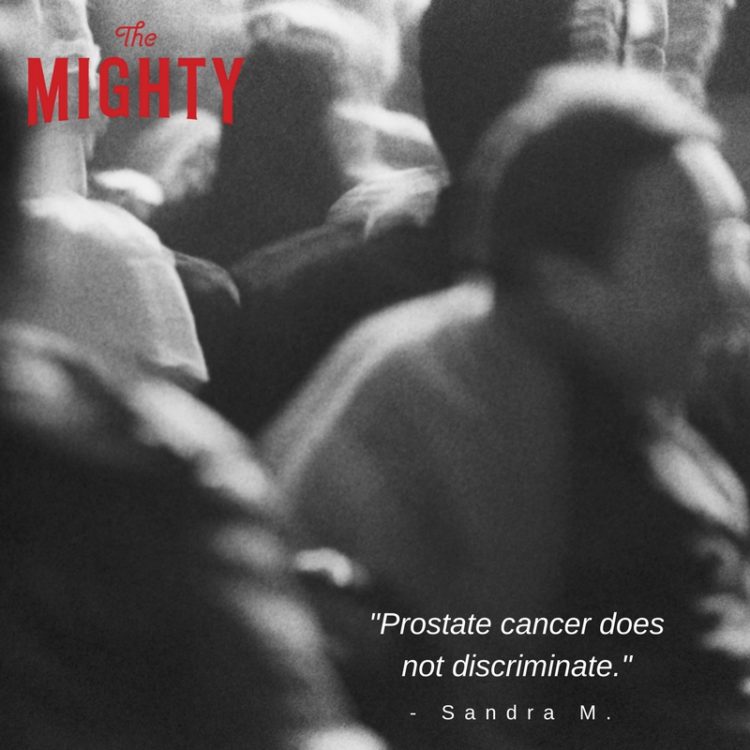
39. “Early detection allows options that can include cancer remission thru proper nutrition, exercise and other lifestyle changes.” — John C.
40. “It can be detected early through PSA tests. Men, please get tested. With the support of friends, family and a medical team, as well as organizations such as ZERO, it makes it much easier to get through. #ProstateCancerSurvivor” — Robert C.
Do you have anything else you’d like people to know about prostate cancer? Share it in the comments below.
Thinkstock photo by tupungato

